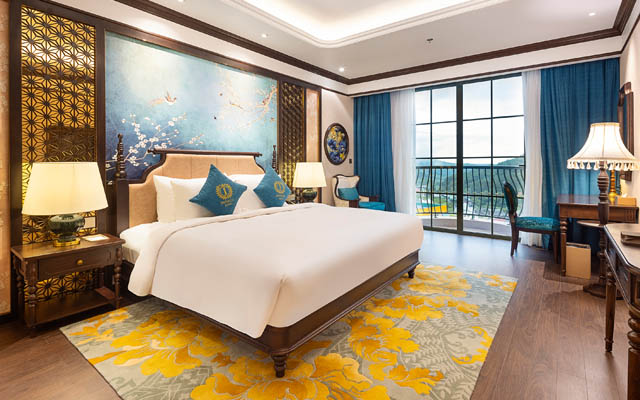Indonesia’s former tourism ministers have come together to form the Tourism Minister’s Club, which was launched during the Wonderful Indonesia Tourism Fair (WITF) 2024 in Jakarta last weekend.
The club serves as a platform for former ministers to contribute their thoughts and ideas to the future minister for the betterment of the Indonesian tourism to achieve the goal of the Golden Indonesia 2045, when the country celebrates 100 years of independence.

Four former ministers and one former vice minister attended the club’s first dialogue, which was held during the Top Tourism Leaders Forum of WITF 2024. Sandiaga Uno, current minister of tourism and creative economy for Indonesia, was also present.
A clear tourism master plan is needed for Indonesia to serve as guideline for the future ministers in determining policies, emphasised Abdul Latief, who was minister of tourism, art and culture in 1998. He cited Bali as an example, stating that the tourism development there was unclear due to not having a clear plan to follow.
He remarked that “to move forward”, there needed to be a goal and “the plan to achieve it”, adding that with tourism being “super labour intensive”, effective human resource training is crucial for ensuring employees are well-equipped to provide quality service.
These are all reasons why Latief has called on the fellow former ministers and members of the Association of the Indonesia Tourism Industries (GIPI) to work together to come up with a proposal to submit to the new minister under the Prabowo Subianto administration, who will take office in October 20.
Meanwhile, Arief Yahya, minister of tourism from 2014 to 2019, hopes the new minister will “fight hard for tourism” and have a sizeable budget allotted to the sector, especially since tourism is the nation’s “core economy”. He opined that for Indonesia to become a global tourism player, the country needed to follow and adapt to the global standards.
He referred to the success of following the Travel and Tourism Development Index (TTDI): “Indonesia ranked 70 (in 2014) and after a lot of effort, we managed to move up the TTDI to this year’s rank of 22nd in the world (and second in South-east Asia after Singapore).”
Culture and nature are two of Indonesia’s strengths, which is why Jero Wacik, minister of culture and tourism (2004-2011), stressed the need to focus on nurturing not only traditional culture, but also contemporary culture, music, film as well as the arts. In fact, it was during the time when Mari Pangestu was minister of tourism and creative economy (2011-2014) that arts and culture was recognised and developed as a contributor to Indonesia’s economy.
“The potential of creative economic sector is huge, and the synergy between tourism and creative economy needs to be nurtured and developed,” pointed out Mari.
However, tourism was not just about economy.
“Tourism and culture bears the country’s image – tourism is not just an economic story but the branding of a nation,” she said, adding that sustainable and quality tourism was therefore the way to go.
“Even the mass tourism has to be quality tourism,” she said.
Stressing the importance of “speed” in terms of services, Arief has called on the authorities to streamline regulations to turn international interest into business. He suggested taking a look at Vietnam and what was done “to deregulate their policies that led them to fast growing tourism”.
Arief also reminded industry members on the importance of keeping up with digital technology: “If hotels, travel companies (and attractions) do not embark on incorporating digital technologies in your business, trust me, you will vanish.”
With his ministerial term ending soon, Sandiaga hopes his successor will continue to develop tourism in the country with a focus on quality and sustainability.


















